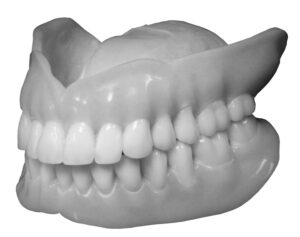
As if Americans needed one more health risk to worry about, we are headed into the peak season for colds and flu.
Healthy individuals are typically able to get past these. However, with immune systems that are less efficient, older adults find these illnesses aren’t so easy to kick. Developing pneumonia or having the flu become severe can result in death.
In the most recent flu season, estimates from the Centers of Disease Control & Prevention (CDC) are that 80,000 people in the U.S. died from the flu. According to the CDC’s StatNews site:
“Last fall and winter, the U.S. went through one of the most severe flu seasons in recent memory. It was driven by a kind of flu that tends to put more people in the hospital and cause more deaths, particularly among young children and the elderly.”
It didn’t help that last year’s flu vaccine was found to be less effective than anticipated. (https://www.statnews.com/2018/09/26/cdc-us-flu-deaths-winter/)
Although adults are still urged to receive a flu vaccine for the upcoming flu season, it makes sense to take additional measures to avoid being susceptible. Frequent hand washing, eating a healthy diet, staying away from people who may be sick, and staying hydrated are all ways to lower the risks for illness.
Oh yeah, and one more thing…
If you wear dentures or partials, keeping them clean – REALLY clean – is an important measure to take to avoid getting sick. And DO NOT sleep in them.
Here’s why.
One study (published in the Journal of The American Dental Association) assessed bacteria levels of the material that make up the gum base of dentures and partials. This portion is made of a porous material. In the mouth, it becomes coated with a sticky bacteria known as biofilm.
It has been found that this biofilm can harbor MRSA or bacteria that is resistant to antibiotics. It was also found that the bacteria in the biofilm doesn’t just stay in the mouth. It can be inhaled into the lungs where infections become much more difficult to treat. (https://www.nbcnews.com/healthmain/dirty-dentures-dangerous-mrsa-may-be-lurking-dentists-say-662637)
To add to the risk is the high number of denture and partial wearers who sleep in their appliances. One study found that wearing dentures while sleeping doubles the risk of pneumonia in elderly adults. (https://www.ncbi.nlm.nih.gov/pmc/articles/PMC4541085/)
Bacteria are living, breeding organisms. Here’s a not-so-pleasant image: these bacteria take up residence in denture pores and rapidly increase in number. Add to that this fact: sleeping in dentures adds greatly to the amount of time these slimy organisms run rampant in your mouth and seep down your throat. For those who have immune systems that are already compromised, this added burden is a load some people cannot overcome.
Yet, a heightened risk of illness from dentures isn’t all a denture wearer should worry over. Eating a healthy diet, proper chewing and supporting the digestive system can all be compromised when dentures or partials don’t fit comfortably or securely.
People who have worn dentures for years go through a process they may not even know is underway. “Resorption” is the term that describes the jaw bone’s steady decline of bone mass. This bone structure is what once held natural tooth roots. Without the presence of tooth roots, it is no longer stimulated and nourished and slowly “melts” away.
Typically, denture wearers begin to notice this through changes in the fit of a once-secure denture while biting or chewing. It may begin as a slip or uncomfortable rubbing against tender gum tissues. Dental pastes or adhesives are applied more frequently, often with limited help. The solution, for many, is to alter the choice of foods to those that are soft and dissolve easily in the mouth.
This is why denture wearers have more gastrointestinal problems and take more medications than people who have their natural teeth.
With all the frustrations and complications of wearing dentures, it’s no surprise that dental implants are the ideal when it comes to replacing natural teeth.
Dental implants are held by the jaw bone, restoring the same sturdy foundation that your natural teeth once had. This allows you to bite and chew without worry or discomfort. Dental implants also recreate stimulation to the bone that supports them, halting the rate of bone loss accentuated by wearing dentures.
Best of all, dental implants are designed to last a lifetime, making them a wise investment. Over the years, their track record is one of the highest of all implant-in-bone success rates – up to 97 percent. As a dentist who offers all stages of dental implants, our Shelby Township dental office offers the full array, from diagnosis to placement to the restoration of your final teeth. Oral and IV sedation (“twilight sleep”) is also available.
Avoid the health risks associated with dentures and partials. Dental implants are dependable, safe, lasting, and provide a natural look and feel. Call 586-739-2155 or tap here to schedule an appointment to discuss the type, cost and overall process recommended for you.